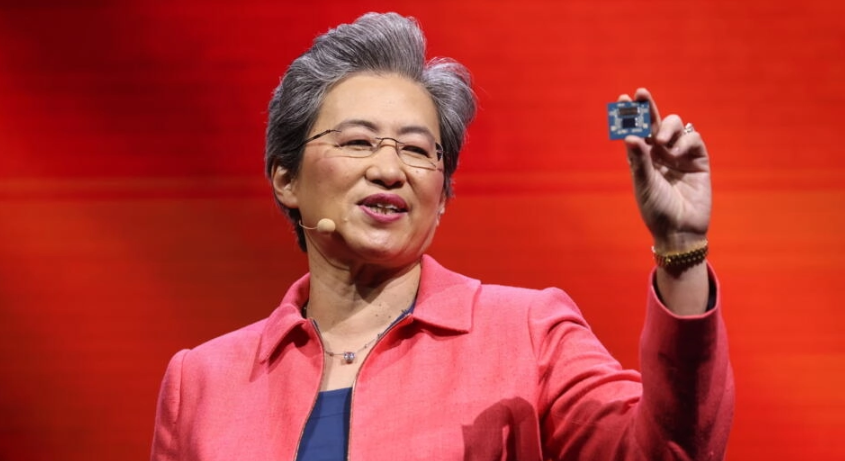On Monday, AMD unveiled its latest artificial intelligence chips designed for a wide range of applications, spanning from cutting-edge data centers to advanced laptops, intensifying its competition with the dominant market leader Nvidia.
Over the past two years, there has been a surge in demand for specialized processors tailored to develop, train, and execute AI applications, such as ChatGPT. Positioned as one of Nvidia’s primary challengers, AMD has steadily gained ground in this arena, with CEO Lisa Su asserting that the company’s next-generation processors will stand toe-to-toe with the leading offerings from its competitors.
“AI is our number one priority, and we’re at the beginning of an incredibly exciting time for the industry as AI transforms virtually every business, improves our quality of life and reshapes every part of the computing market,” Su said during a keynote speech at Computex, Taiwan’s premier tech expo.
Su also revealed that AMD will adopt an annual update cycle for its advanced accelerators, with the upcoming release, the Instinct MI325X, slated for later this year. This strategy aligns with a similar annual release schedule announced by Nvidia CEO Jensen Huang on Sunday. Emphasizing partnerships with major laptop manufacturers, Su showcased collaborations with industry giants like Microsoft, HP, Lenovo, and Asus, who highlighted the integration of AMD’s Ryzen processors into their AI-driven computers.
Microsoft, a frontrunner among tech giants in AI, has been heavily investing in the sector, including significant funding for ChatGPT creator OpenAI and the rapid integration of AI functionalities into its products.
Earlier this month, Microsoft unveiled its Copilot+ computers, termed “AI PCs,” which will feature the Windows operating system with embedded AI capabilities. Microsoft CEO Satya Nadella confirmed on Monday that AMD’s Ryzen processors would power these innovative machines.
“We are in the midst of a massive AI platform shift, with the promise to transform how we live and work,” Nadella said in a video message during Su’s speech.
“That’s why our deep partnership with AMD, which has spanned multiple computing platforms, from the PC to custom silicon for Xbox, and now to AI, is so important to us.”
“Things change,” remarked a keynote speaker at Computex, drawing attention to the notable presence of CEOs from major chip companies at the event in Taiwan this year. With Taiwanese manufacturers playing a pivotal role in the AI strategies of tech giants, the island is a hub for producing cutting-edge semiconductors essential for advanced AI applications and research.
Alongside AMD’s Su and Nvidia’s Huang, Intel’s Gelsinger and Arm’s Haas are also in attendance, underscoring the significance of the event. Following AMD’s presentation, Qualcomm CEO Cristiano Amon took the stage, highlighting the use of Snapdragon X Elite processors in Microsoft’s Copilot+ computers.
Amon touted this as a transformative moment for PCs running Windows, citing substantial advancements in AI performance and battery life. His presentation concluded with a playful jab at Apple, showcasing a video featuring actor Justin Long, known for his role in Apple’s iconic Mac vs. PC ads from the 2000s, attempting to order a PC.
“What?” Long said while looking at the camera in the Qualcomm video. “Things change.”



